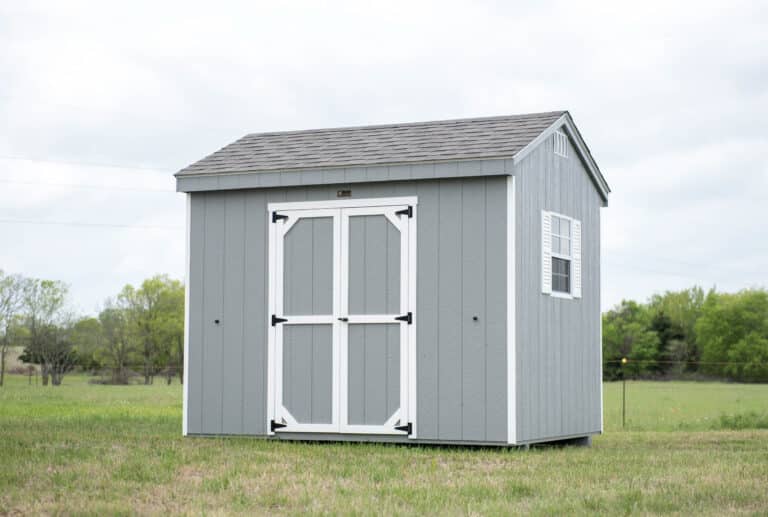Building a shed is an excellent way to create additional storage space on your property, whether for tools, gardening equipment, or seasonal decorations. But with so many options available, selecting the right materials for your custom shed construction can be a daunting task. From wood to metal to plastic, each material has its advantages and disadvantages. In this article, we will explore the top materials for custom shed construction to help you make an informed decision.
Contents
1. Wood
Wood is the most traditional and popular material for building a shed. It is an excellent choice for those looking for a rustic and classic look. Wood is also relatively easy to work with, making it a favorite among DIY enthusiasts. When it comes to durability, wood is strong and long-lasting, provided it is treated and maintained properly. It is also an excellent insulator, keeping the interior of the shed cool in the summer and warm in the winter. However, wood requires regular maintenance, such as painting or staining, to prevent rotting and warping.

2. Metal
Metal sheds have gained popularity in recent years due to their durability, affordability, and low maintenance requirements. Metal is resistant to pests, fire, and rot, making it a great choice for areas with extreme weather conditions. They are also easy to assemble and require little upkeep. Additionally, metal sheds can be customized to fit any design or style. However, metal sheds tend to be less insulated than wood or plastic sheds, which can make them uncomfortable in extreme temperatures. They also tend to rust over time, especially if they are not properly maintained.
3. Plastic
Plastic sheds are a great option for those looking for a lightweight, affordable, and low-maintenance solution. They are weather-resistant, UV-resistant, and do not require painting or staining. Additionally, plastic sheds can be easily assembled and disassembled, making them ideal for those who frequently move or relocate. However, plastic sheds tend to be less durable than their metal or wood counterparts and are not as customizable. They also tend to have a limited lifespan, especially if exposed to direct sunlight for prolonged periods.
4. Composite
Composite sheds are a relatively new material that combines the best qualities of wood and plastic. They are made from a mixture of wood fibers and recycled plastic, making them eco-friendly and sustainable. Composite sheds are strong, durable, and resistant to pests, rot, and weather damage. They also require little maintenance and do not require painting or staining. Additionally, they are customizable and can be designed to fit any style or design. However, composite sheds tend to be more expensive than other materials and can be more challenging to assemble.
5. Concrete
Concrete sheds are the most durable and long-lasting option. They are strong, weather-resistant, and require minimal maintenance. Concrete sheds are also fire-resistant and pest-proof, making them an excellent choice for storing valuable items. They are also highly customizable and can be designed to fit any style or design. However, concrete sheds tend to be the most expensive option and require professional installation. They are also not as easily portable as other materials and are not recommended for areas with high moisture levels, as they can develop mold and mildew.
Conclusion
Choosing the right material for your custom shed construction is essential to ensure that your shed meets your needs and lasts for years to come. Each material has its advantages and disadvantages, and it is essential to consider your specific needs, budget, and design preferences. Whether you choose wood, metal, plastic, composite, or concrete, make sure to choose a material that is durable, weather-resistant, and low-maintenance to ensure that your shed will provide you with the storage and functionality that you need.




[…] and builders with essential insights and considerations for optimal performance and durability. In custom shed construction, pile caps provide essential support, distributing the weight of the structure evenly onto the […]